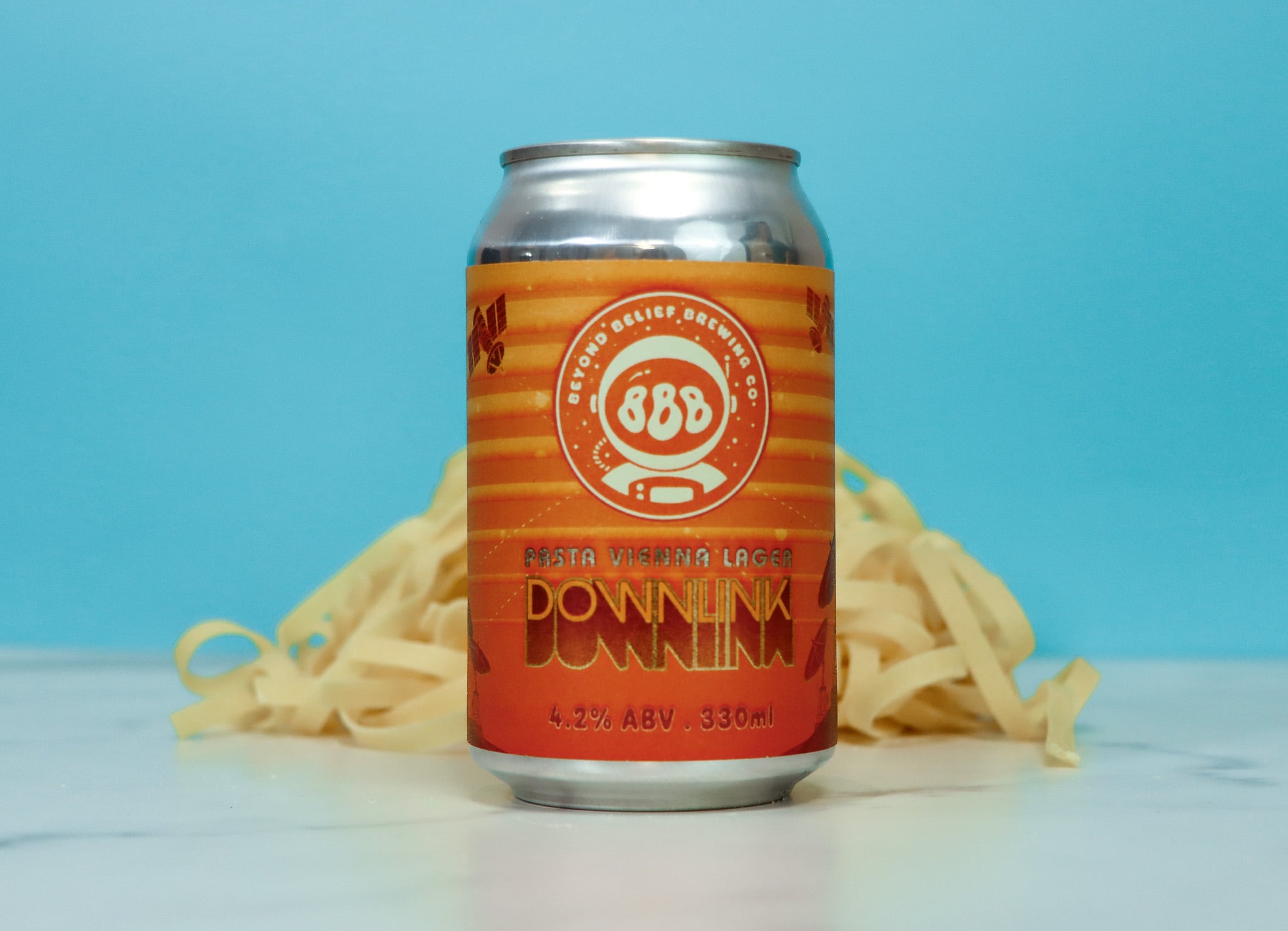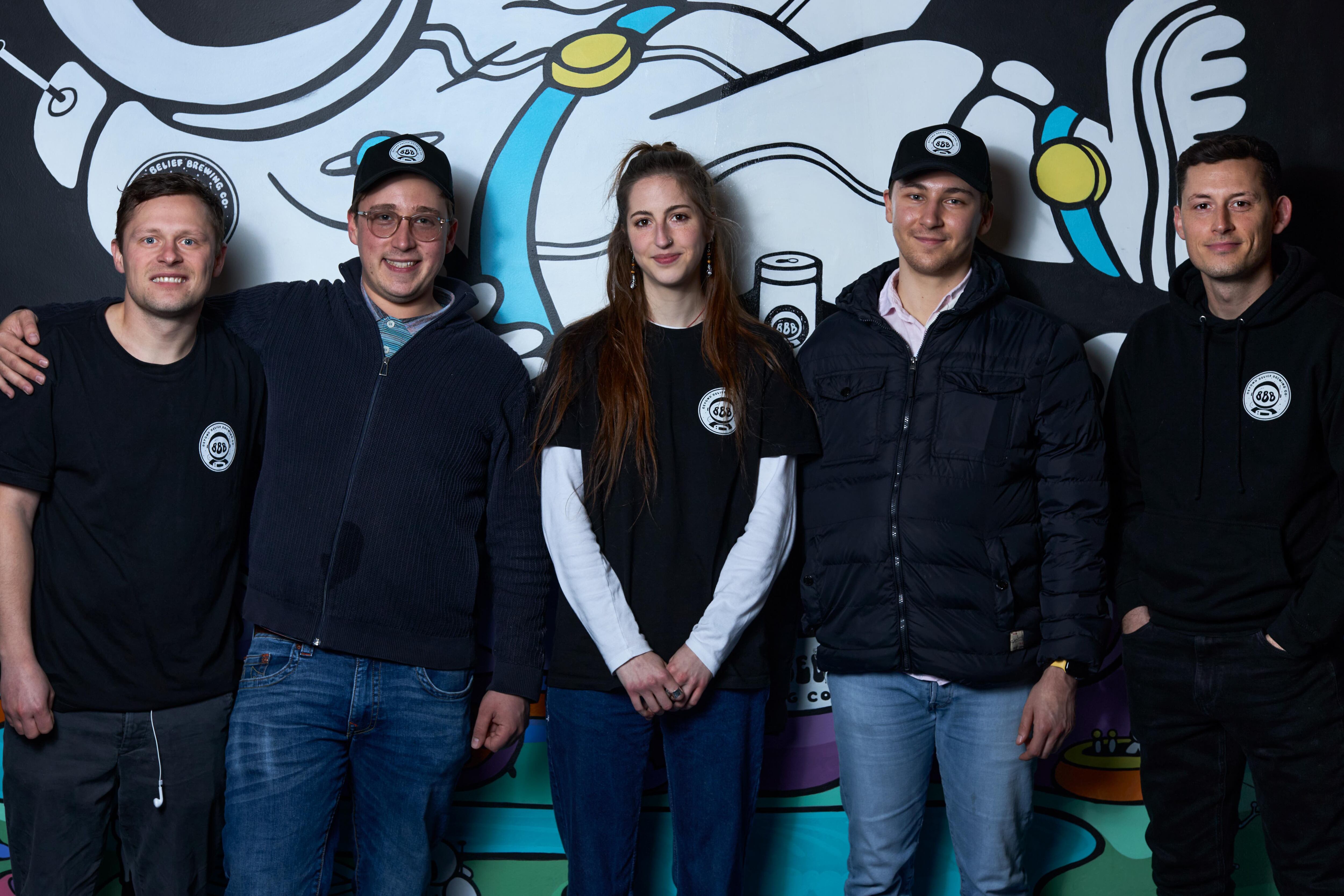
Beer made from pasta is helping to cut food waste.
(Image: Beyond Belief Brewing)
Beyond Belief Brewing is using waste pasta among other products to stop food waste entering landfill
Waste is seen as a commodity of the food manufacturing process, but that’s an upsetting way to view the system, argues Beyond Belief Brewing head of innovation Christian Craft.
“Some companies think it’s cheaper putting waste food in the bin,” he says, adding Beyond was founded to counter that argument and show taking waste out of the system and upcycling has a positive financial and environmental impact.
The London, UK, based business focuses primarily on taking waste pasta from the makers. “I used to be a product developer for one of the UK’s largest pasta companies,” says Craft.
One-third of food goes to landfill
As a result, and following a series of grants and funding support, the Beyond team was able to begin experimenting with the ratios of pasta in brewing, eventually reaching a level where 50% of the fermentable sugar needed in a brew was from pasta.
“For us, it doesn’t matter if it’s wonky, out of spec, shape or whatever,” he says. “The most shocking thing is one-third of food produced ends up in landfill and more people are going to foodbanks too, so there’s a clear imbalance.”
The beer is taking something from the waste system and creating a product that people can enjoy, he says.

A core range of beers including an IPA and amber lagers have been developed, with the pasta able to impart different properties into the beers, including lightness and darkness, depending on their makeup.
Though it’s not only waste pasta Beyond is interested in, the business will take food waste from other sources too.
“We have a stout made from flapjacks by working with one of the UK’s largest bakers,” explains Craft. “They got in touch with us and we ended up coming up with this stout.”
Europe’s mango suppliers
He’s also working in other parts of the world, including Ghana, West Africa, where he’s started working with a mango supplier to European supermarkets and businesses.
“Only one third of mangos grown for the market make it to Europe,” explains Craft. “This is because they’re damaged during transport and storage.”
With the mangos, Beyond brewed a mango pale ale but also utilised waste rice – considered unsellable as it was ‘broken’ – to replace 75% of fermented sugars.
The ambition now is to bolster the business’s brewing capacity and generate more interest in bringing food waste as an upcycled commodity into food systems, says Craft.











